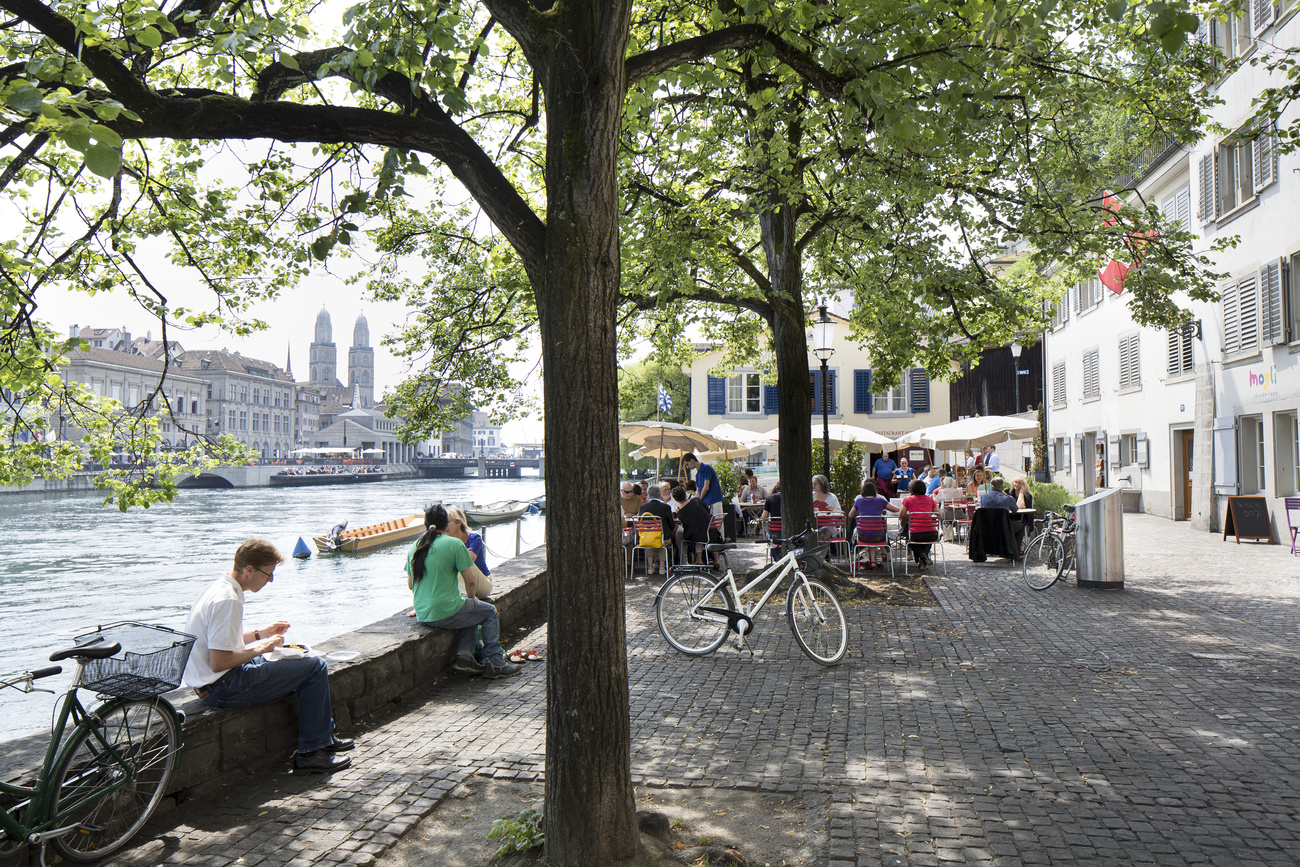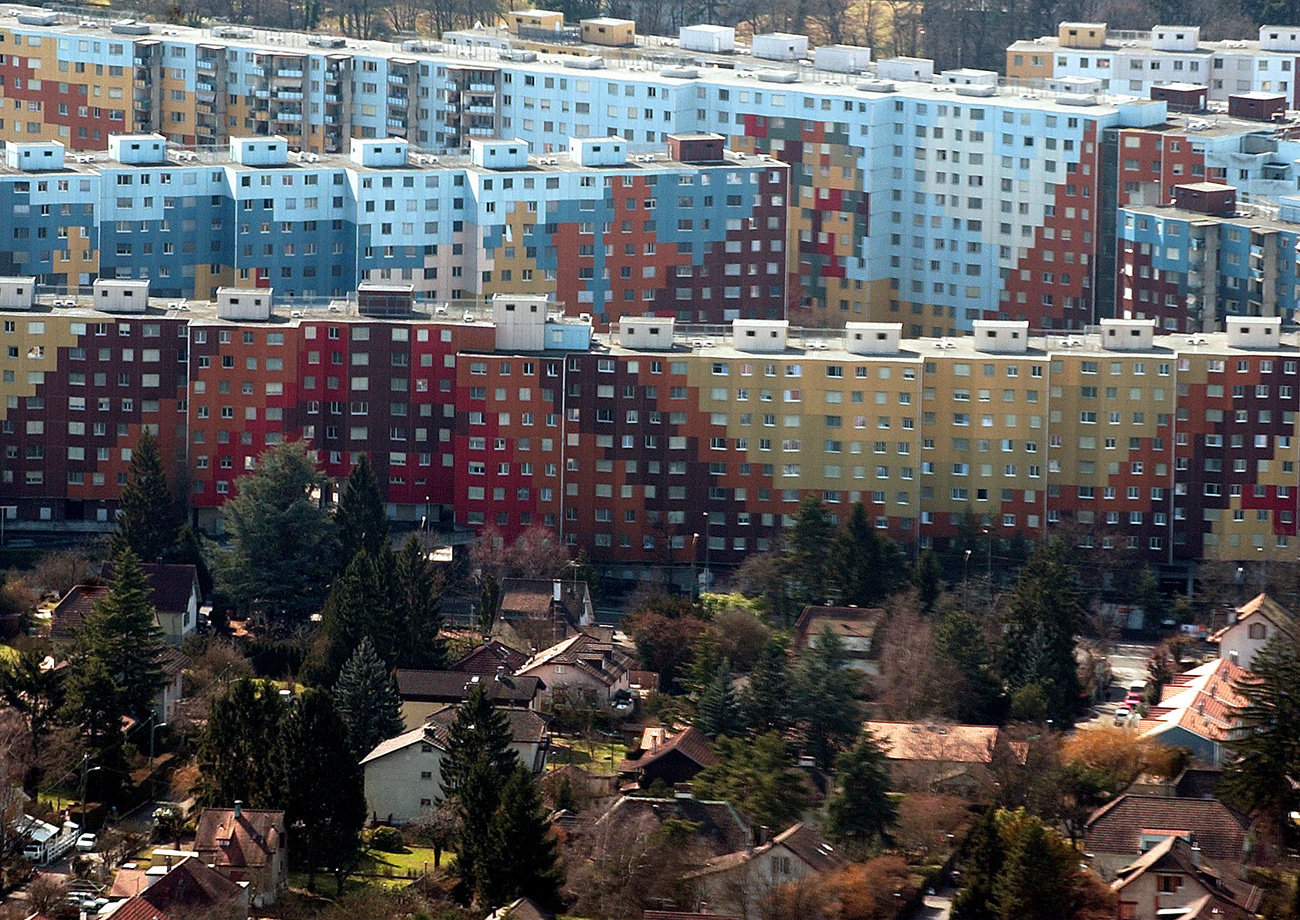
Survey: Swiss cities will continue to exert strong pulling power

The vast majority of Swiss residents live in towns and cities. Over the next 20 years urban areas will continue to attract a growing number of new arrivals, many of whom will want to own their own property, a new survey shows.
Some 85% of Swiss residents (8.6 million population) live in urban areas. A new survey into how the Swiss would like to live in 2040 reveals that many more people would like to join them: one in four people currently living in the countryside wants to move to the city.
Around 60% of Swiss households rent their accommodation, with the figure rising to around 90% in cities like Geneva, Lausanne and Zurich. But owning a home remains a dream for many people. Half of those who took part in the Demoscope survey, commissioned by the Swiss Association of Master Builders, said they would like to own their own apartment or home.
This desire for independence also applies to personal mobility. Some 39% of those questioned in the survey published on Sunday said a car would be their preferred method of transport in the future. Around one in three said they would prefer to cycle or walk more, while 23% said they would rely on public transport.
More city residents, more homes and apartments and more cars: will that be possible in the small Alpine nation?
“It’s wishful thinking that is not credible when you look at the available space,” Thomas Sauter-Servaes, a mobility researcher at the Zurich University of Applied Sciences, told the SonntagsBlick newspaper.
The car is popular because it’s become a “moving experience chamber”, he said. “But it is also a destroyer of urban space”.
The Zurich researcher believes that, despite the individual wishes revealed in the poll, public transport, walking and cycling will play a central role in future Swiss mobility.

More
Life as an expat in Swiss cities: the good news and the bad news

In compliance with the JTI standards
More: SWI swissinfo.ch certified by the Journalism Trust Initiative





























You can find an overview of ongoing debates with our journalists here . Please join us!
If you want to start a conversation about a topic raised in this article or want to report factual errors, email us at english@swissinfo.ch.